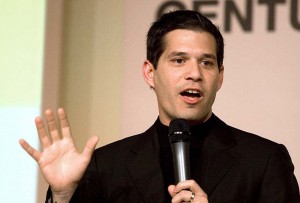Better Place, the Israeli company once considered in the vanguard of the movement for electric vehicles has filed for liquidation after its efforts to establish a commercially viable battery-swap operation in Israel failed.
Founder and electric car advocate Shia Agassi, left Better Place last year and the decision by his successor to file for bankruptcy and liquidate the company is only the latest in a string of setbacks for electric vehicle start-ups. Better Place now joins battery-car makers and suppliers such as Bright Automotive, A123 Battery and Coda that were scrapped after failing to win support from consumers and investors. Fisker Automotive is soon expected to join the list.
Better Place’s decision to cease operation also is a setback for Nissan and Renault chief executive officer Carlos Ghosn who has been a huge supporter of EVs and pushed Nissan to sell the all-electric Leaf. Ghosn was a strong proponent of Better Place which promoted the idea of fast battery swapping to improve battery-car range.
Ghosn had described Better Place’s technology as one of the pillars of the French automaker’s ambitious $5.17 billion electric-vehicle strategy. The first cars equipped with Better Place technology were Renault Fluence Z.E. sedans.
The failure of Better Place is expected to put new pressure on Ghosn to show that his EV strategy will work. Leaf sales have failed to meet targets for several years, though demand in the critical U.S. market has rapidly grown since the maker began producing the battery-car on a new assembly line in Tennessee earlier this year.
Lack of consumer interest even in Israel — where EVs were assumed to be a good fit — and heavy costs apparently sunk Better Place, executives and analysts said.
“Unfortunately, after a year’s commercial operation, it was clear to us that despite many satisfied customers, the wider public take-up would not be sufficient and that the support from the car producers was not forthcoming,” said Better Place Chief Executive Dan Cohen in a statement.
Renault said it would continue to explore all charging technologies, including quick swap. “This decision does not at all call into question the electric vehicle strategy of the Renault-Nissan Alliance,” the French company said in a statement.
Better Place had developed a system where electric-car owners could drive their vehicles into a network of stations around Israel and replace the car’s battery with a new one in about the same amount of time it takes to fill a gasoline tank on a regular car. The “quick drop” system was supposed to remove two of the main obstacles to the adoption of electric vehicles. For one thing, it removed so-called “range anxiety,” and it eliminated the need to park an electric vehicle for hours to recharge a flat battery.
But the system never attracted enough users to make it commercial, Cohen said.
The idea behind Better Place was always intriguing to many people. The knock on electric vehicles has long been that the batteries are too expensive and charging them up, even using special high-speed chargers can take 30 to 90 minutes or more – and far longer on normal household current.
However, Better Place spent hundreds of millions of dollars building its pricey battery-swapping stations – at about $500,000 a pop. The company ran into regulatory hassles in Israel and as of March, Better Place had only sold 750 cars in Israel and was losing some $500 million.
Efforts to expand to other markets had largely come up dry.
It’s not clear what will be done for the owners of the vehicles the firm had already sold in Israel.


EV’s are going to be another failed venture before too long when they prove unsustainable even with billions of tax payer dollars used to prop up unrealistic business models.